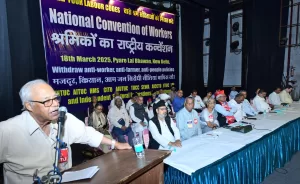Efforts to develop semi-privately governed jurisdictions called Economic Development and Employment Zones (ZEDEs) in Honduras have recently emerged anew. ZEDEs, first legislated as Special Development Regions (REDs) and informally known as “charter cities,” “model cities,” or “startup cities,” are a flexible territorial concession that can be used for city-scale real estate and tourism development, resource extraction, energy production, manufacturing, banking, and the expansion of deregulated digital markets.
ZEDEs provide investors with the opportunity to establish their own independent laws and governing structures, judicial systems based in common law and arbitration, regulatory frameworks, and security forces. An international governing body called the Committee for the Adoption of Best Practices, comprised of former members of Ronald Reagan’s Outreach Working Group on Central America and other ideologues from leading neoliberal think tanks, controls the approval process and parts of the internal governance of the ZEDEs nationally.
But for years the future of ZEDEs has been a question mark. National opposition to the project on the grounds that it violated national sovereignty and threatened mass displacement peaked after the passage of constitutional reforms for Special Development Regions (or RED, by their Spanish initials) in 2011. Resistance from community-based organizations like the Black Fraternal Organization of Honduras (OFRANEH) and the Council of Popular and Indigenous Organizations of Honduras (COPINH), as well as the work done by Honduran lawyers and journalists helped lead to a 2012 Supreme Court ruling that the RED reforms were unconstitutional.
The Honduran Congress, under the leadership of Juan Orlando Hernández, the current president of Honduras, un-seated the four magistrates who had voted against the REDs in an overnight, irregular proceeding. The maneuver was deemed by some a “technical coup” — one that allowed legislators to go back to the drawing board and pass a new ZEDE Law in 2013. However, the earlier court ruling had already stopped a few initial city-ventures in their tracks and cast doubt on the feasibility of the project.
Additionally, constant governance crises have characterized the Juan Orlando Hernández administration since it came to office in 2014. In 2015, Hernández faced a national pro-democracy movement that called for his removal following revelations of embezzlement and fraud in the Honduran National Social Security Institute. In 2017, following elections mired by credible reports of fraud, Hernández imposed a months-long curfew and suspension of constitutional rights in order to quell protests. Protests throughout the country were violently repressed by state security forces, who killed over thirty people in the weeks before Hernández was sworn in. Since then, his administration – which has received strong backing from the U.S. government – has been further marred by corruption investigations as well as allegations of direct links to drug trafficking and organized crime. Hernández’s own brother, Antonio “Tony” Hernández was found guilty of illegal cocaine trafficking in a Manhattan Federal court in 2019. These numerous controversies, as well as the dysfunction and criminality undergirding them, have made it difficult for the Honduran government to secure large-scale investment for ZEDEs.
Given all of this, even ZEDE advocate Mark Lutter of the Charter City Institute based in Washington DC was surprised to see the first ZEDE publicly launched in May of this year. The Próspera ZEDE, a 58-acre land purchase located in Crawfish Rock on the Caribbean island of Roatán, had been in the works behind the scenes since 2017. It was founded with investment from NeWay Capital and support from former German mining executive Titus Gebel, founder of the Free Private Cities Foundation, among others. The same group hopes to develop a constellation of ZEDEs in La Ceiba, Puerto Cortés, Cuyamel, and Amapala, Honduras. A second ZEDE called “Ciudad Morázan” launched in Choloma, Cortés just months after Próspera.
Today we see both renewed interest in, and opposition to, the ZEDE project. Despite restrictions put in place for Covid-19 prevention, Hondurans in Crawfish Rock have come out to confront NeWay investors in their own community. The issue has received major coverage on national news networks, which have hosted debates on the issue of sovereignty and privatization. In an unprecedented move, the National Lawyers Association of Honduras held a press conference on October 13, adopting an official position that the ZEDE law is unconstitutional and calling for it to be overturned legislatively.
On October 19th, the Bay Islands of Honduras made a similarly unequivocal statement of opposition to the ZEDE. Despite generally being friendly to foreign investment, the Roatán Municipal government signed a declaration alongside the Mayors of Santos Guardiola, Utila, and Guanaja, the Bay Islands Chamber of Tourism, and the Bay Islands Chamber of Commerce. The declaration demands that Congress carry out a popular referendum on ZEDE development in the Department of the Bay Islands in accordance with the right to prior consultation guaranteed under Convention 169 of the International Labor Organization, which Honduras has ratified. It calls for an investigation into the approval of the Próspera ZEDE, and states: “We are energetically opposed to the installation of ZEDE projects inside our territory and to the government expropriating ancestral lands through the ZEDE Law to be handed over to foreigners for their benefit and profit.” The Federation of Patronatos (local governing councils) of the Bay Islands, the Islander Alliance for Social Justice, and the Native Bay Islanders Professional Labor Association signed a similar statement in August. These and other local organizations have formed the Coordinating Board for Territorial Defense of the Bay Islands in order to challenge ZEDE development.
In Amapala, a municipality in the southern department of Valle (where the government has been planning ZEDE development with the help of the South Korean aid agency KOICA since 2014), local organizations have organized a new round of demonstrations at the doors of the municipal government. As a result, the mayor, Alberto Cruz, recently stated publicly that he is “categorically, emphatically” against a ZEDE in the municipality, noting that Amapala does not meet the high-population density requirement in the ZEDE Law to trigger a popular referendum on the matter. Cruz’s statements come years after the Association for Holistic Development in the Peninsula of Zacate Grande (ADEPZA) and other organizations in Amapala campaigned against ZEDE development, arguing that it would exacerbate a process of land dispossession that is already underway.
Around Choloma and San Pedro Sula, teachers’ groups that formed during the 2019 national strikes against education restructuring reforms – seen as a move to weaken the public education system – have organized virtual forums to share information on the ZEDE law and its implications for Honduras. New organizations have sprung up on a national level, like Movimiento Patria (The Homeland Movement), comprised primarily of Honduran business owners and politicians. The organization formed over the Hernández administration’s mishandling of Covid-19 funds and has now opposed the ZEDE model of investment.
Will we see disaster capitalism in Honduras after Hurricanes Eta and Iota?
In Naomi Klein’s classic The Shock Doctrine: The Rise of Disaster Capitalism, Klein discusses the capitalization of crisis in Honduras after Hurricane Mitch. Mitch changed the course of history in Central America in 1998, but its most lasting impacts were not the destruction wrought by the hurricane itself. Domestic elites and foreign interests used the state of crisis and the need for reconstruction to pass sweeping reforms. The reforms allowed for the privatization of key trade and transportation infrastructure, the state telephone company, and other key sectors. The Honduran government overturned land reform laws and swiftly passed a pro-business mining law that expanded resource extraction throughout the country.
The ZEDEs themselves seem to follow disaster around. They were proposed in Honduras following the 2009 military coup that left the country economically depressed, militarized, and in the hands of concessionist right-wing leaders with ties to drug trafficking and money laundering. Since then, deteriorating conditions in Honduras and the “failed state” narrative have been used to justify the ZEDE’s outsourced governments as being better than the alternative.
After years of stagnation, ZEDEs were once again proposed as a solution to crisis in 2018 when tens of thousands of Hondurans fled to the US-Mexico border in migrant caravans. After Hurricane Maria ravaged Puerto Rico in 2017, startup city enthusiasts and would-be investors convened in Washington DC to discuss using private cities run on blockchain technologies and cryptocurrencies to rebuild the island. They subsequently gathered in Puerto Rico to try to move forward with their city-ventures, but were met with local opposition.
Last month, northern Honduras was ravaged by Hurricanes Eta and Iota. Both hurricanes, which hit less than two weeks apart, are among the strongest in recorded history. The Orlando Hernández administration has blocked aid from entering ports unless it goes directly through government agencies. Many Hondurans accuse the government of having embezzled aid funds and supplies for the Covid-19 pandemic, and hope to channel hurricane relief directly to local organizations. Like in 1998 after Hurricane Mitch, however, the humanitarian crisis may be used to accelerate long-term, structural reforms. In the absence of political will and capacity to care for the needs of newly devastated communities, and with just one year left of Hernández’s second term, it is likely that ZEDEs will again be promoted as a method of reconstruction and negotiated behind closed doors. Hondurans will have to act fast in nearly impossible conditions if they want to resist them.
(Beth Geglia is a researcher and documentary filmmaker. She is completing her Ph.D. in Anthropology at American University. Article courtesy: The Center for Economic and Policy Research (CEPR). CEPR was established by economists Dean Baker and Mark Weisbrot in 1999 to promote democratic debate on the most important economic and social issues that affect people’s lives.)




